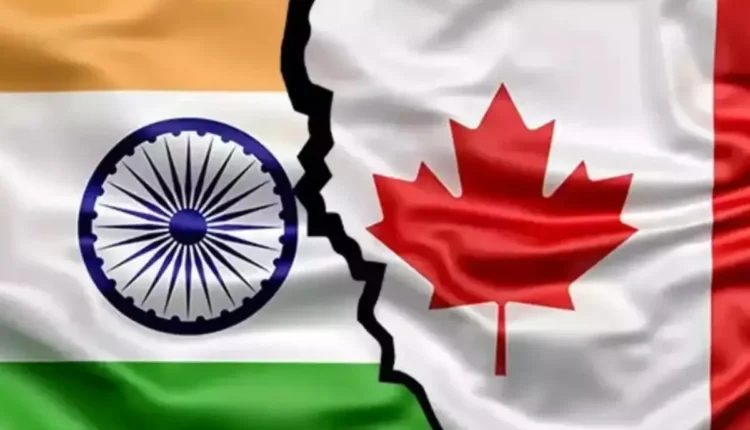Trade Talks : Stalled Amidst Khalistan Diplomatic Tensions
India and Canada Forge Ahead with Trade Talks
Trade Talks : In the backdrop of rising diplomatic tensions between India and Canada over the Khalistan issue, trade talks between the two nations appear to be stuck in a state of limbo. However, while negotiations remain paused, ongoing investments and trade talks between the two countries continue to thrive.
Diplomatic Standoff Over Khalistan Issue
The escalating tensions can be traced back to Canadian Prime Minister Justin Trudeau’s announcement of “credible allegations” suggesting the involvement of the Indian government in the killing of Canadian citizen Hardeep Singh Nijjar.
Nijjar was the chief of the Khalistan Tiger Force (KTF), a designated terrorist organization in India. India vehemently denied these allegations, triggering a full-blown diplomatic war between the two nations.
The chill in relations was palpable even before the G20 Leaders’ Summit in New Delhi, where Trudeau was in attendance. Canadian government officials had indicated that trade talks had been put on hold, a stance later confirmed by a high-ranking Indian commerce ministry official. This pause was attributed to “certain political developments.”
Trade Talks – The India-Canada Comprehensive Economic Partnership Agreement (CEPA)
Formally re-launched in March 2022, the CEPA negotiations were on track to conclude by the end of 2023. Nine rounds of talks had taken place by July 2023, covering various trade-related topics. However, this isn’t the first time negotiations have faltered, as the CEPA talks were initiated in 2010 but abandoned in 2017 due to differing viewpoints.
Despite these hurdles, economic ties between India and Canada have continued to prosper. Canada has emerged as a significant investor in India, with entities like the Canadian Pension Plan Investment Board and Brookfield investing in sectors ranging from infrastructure to startups.
According to Invest India, Canada stands as the 18th largest foreign investor in India, with cumulative investments of $3.3 billion between April 2000 and March 2023.
Robust Trade Talks
India was Canada’s ninth-largest trading partner in 2022, with bilateral trade reaching $8.16 billion in FY23. From April to July 2023, India’s exports to Canada amounted to $1.24 billion, with imports totaling $1.32 billion. Key exports from India include pharmaceuticals, iron and steel products, and telecom instruments, while top imports consist of coal, fertilizers, and pulses.
Over 600 Canadian firms operate in India, with over 1,000 actively pursuing business opportunities. Collaboration spans various sectors, including mining of critical metals, education, and skilled labor. Additionally, Canada boasts a significant Indian diaspora, with nearly 1.6 million Persons of Indian Origin and 700,000 non-resident Indians calling it home.
Impact on Key Commodities
One notable import from Canada to India is masoor dal (red lentils). Given that retail inflation in pulses remains in double digits, India may continue to rely on imports from Canada to stabilize domestic supplies. In August, retail inflation in pulses stood at 13.04 percent.
Despite recent developments such as the suspension of visa services for Canadians by India and travel advisories issued by both nations, trade talks between the two countries remain largely unaffected. The Competition Commission of India, for instance, approved certain investments by Canadian entities in late September.
Optimism Amidst Tensions
There remains optimism that India’s trade talks with other countries, like the UK, will continue unaffected. The UK, despite being a close ally of Canada and part of the Five Eyes intelligence alliance, has not seen its free trade agreement (FTA) talks with India disrupted. Britain’s Business and Trade Secretary, Kemi Badenoch, recently expressed optimism about the two countries nearing a mutually beneficial FTA.
Economists and trade policy specialists agree that despite current tensions, the deep economic relationship and shared interests between India and Canada make a complete disruption of trade ties unlikely.
Nagesh Kumar, Director of the Institute for Studies in Industrial Development, emphasizes that trade is driven by mutual demand and supply, suggesting that ongoing trade is unlikely to be significantly affected.
Samridhi Bimal, a trade policy specialist, echoes this sentiment, stating that while recent developments are concerning, they are unlikely to have a substantial impact on economic relations. She views the pause in trade talks as a temporary hurdle that should not be seen as a definitive endpoint. The strong economic ties between the two countries should incentivize them to work toward a peaceful resolution.
Also Read : Elon Musk : Advocates for an Expedited Immigration System

